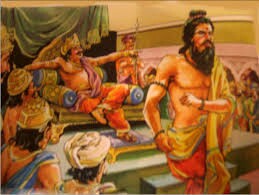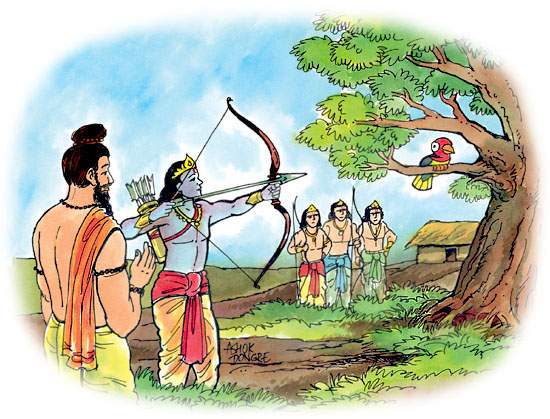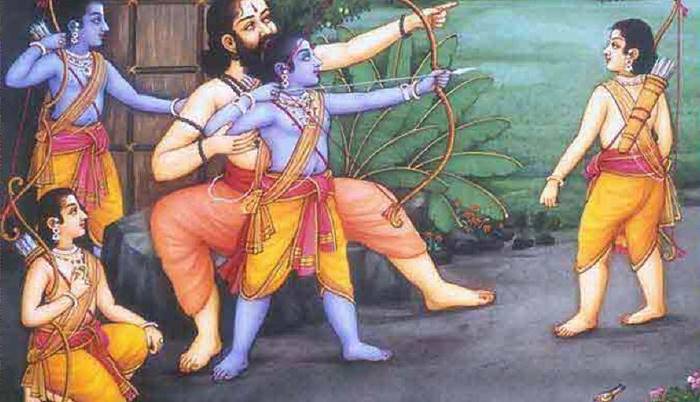When we think of the Mahabharata, a few names immediately stand out—Krishna, Arjuna, Bhishma, Karna. But among them, one figure played a crucial role in shaping the destiny of the epic—the legendary guru, Dronacharya. He was not just a teacher; he was a master of warfare, a strict disciplinarian, and a man bound by duty. He trained the greatest warriors of the time, including Arjuna, Bhima, Yudhishthira, and even the mighty Duryodhana.
Yet, like all great figures, Dronacharya was a complex character. His life was filled with moments of brilliance and controversy, from his unwavering favoritism towards Arjuna to his harsh treatment of Ekalavya. His journey—from a poor Brahmin seeking employment to becoming the royal preceptor of Hastinapura, and eventually a commander in the Kurukshetra war—is one filled with lessons on ambition, loyalty, and morality.
In this blog, we will explore Dronacharya’s life, diving deep into his early years, his rivalry with Drupada, his role as a teacher, his actions in the war, and his ultimate downfall. Let’s begin.
Origins and Early Life
Dronacharya was born to Sage Bharadwaja under divine circumstances. The story goes that one day, Sage Bharadwaja was bathing in the Ganga when he saw an apsara (celestial nymph) named Ghritachi. Overcome by emotions, he involuntarily emitted vital energy, which was stored in a pot. From this pot, Drona was born, earning him the name Drona, which means “born in a vessel.”
Growing up, Drona displayed exceptional intelligence and a keen interest in martial arts. He trained under Sage Agnivesha, mastering the art of warfare, archery, and combat. During his studies, he became close friends with Drupada, the prince of Panchala. The two young men swore eternal friendship, with Drupada promising that when he became king, he would share his kingdom with Drona.
However, Drona’s life was far from easy. He married Kripi, the sister of Kripacharya, and they had a son, Ashwatthama. Despite his knowledge and skills, he struggled financially and sought ways to provide for his family. This struggle set the stage for a pivotal moment in his life—his fateful visit to Drupada.
The Rivalry Between Drona and Drupada
Remember that friend from school who promised to always have your back but changed completely once they achieved success? That’s exactly what happened between Drona and Drupada.
Struggling to make ends meet, Drona approached Drupada, expecting help from his childhood friend. However, power had changed Drupada. He laughed at Drona, mockingly stating that friendship could only exist between equals—how could a beggar and a king be friends?

Humiliated and furious, Drona vowed revenge. This incident not only shaped his future actions but also ignited a chain of events that would ultimately lead to the birth of Draupadi and Dhrishtadyumna, the very people destined to bring his downfall.
Becoming the Royal Guru of Hastinapura
Fate soon provided Drona with an opportunity. One day, while wandering near Hastinapura, he encountered the young Kuru princes struggling to retrieve a ball from a well. Demonstrating his unparalleled skills, he used blades of grass as arrows to pull the ball out.
Impressed, the princes took him to Bhishma, who recognized his talent and appointed him as the royal guru of Hastinapura. Drona now had access to power, prestige, and the perfect medium to exact revenge on Drupada.
The Training of the Kuru Princes and the Rise of Arjuna
Dronacharya was a strict but brilliant teacher. Under his guidance, the Pandavas and Kauravas became formidable warriors. However, one student stood out—Arjuna.

Drona saw an exceptional spark in Arjuna and ensured he received the best training. He even went to the extent of denying food to Arjuna at night so he would practice archery in the dark, enhancing his skills. This favoritism, however, led to two major controversies:
The Ekalavya Incident
Ekalavya, a tribal prince, self-trained himself by making a statue of Drona and practicing before it. When Drona saw that Ekalavya had surpassed his best student, he demanded guru-dakshina (teacher’s fee)—Ekalavya’s right thumb. Reluctantly, Ekalavya obeyed, rendering himself incapable of archery.
Many see this as an example of Dronacharya’s caste bias and unfair treatment, highlighting the complex morality of his character.
The Revenge on Drupada and Creation of Dhrishtadyumna
Using his students, particularly Arjuna, Drona attacked Panchala and captured Drupada, fulfilling his revenge. However, Drupada was no ordinary man. He performed a yajna (sacrificial ritual) to create a warrior who would kill Drona—thus, Dhrishtadyumna was born.
This moment sealed Drona’s fate. The very student who had helped him win against Drupada had unknowingly set the wheels in motion for his eventual death.
Dronacharya in the Kurukshetra War
Despite knowing that the Pandavas were on the side of dharma, Drona chose to fight for the Kauravas out of duty.
He was appointed as the commander-in-chief of the Kaurava army after Bhishma’s fall. His strategies were remarkable, yet controversial—particularly in the slaying of Abhimanyu, where he played a role in trapping the young warrior unfairly.
The Death of Dronacharya
It was almost impossible to kill Drona as long as he wielded weapons. Krishna devised a plan—Yudhishthira falsely announced that “Ashwatthama is dead” (implying an elephant, not Drona’s son). Hearing this, Drona, heartbroken, laid down his arms. Seizing the moment, Dhrishtadyumna beheaded him, fulfilling the prophecy of his birth.
Dronacharya’s Legacy and Influence in the Modern Context
Drona’s life teaches us several lessons:
- Great teachers can have flaws—Drona was brilliant but showed favoritism.
- Revenge never truly satisfies—his rivalry with Drupada led to his own doom.
- Morality is complex—was he right in taking Ekalavya’s thumb? Was he justified in his favoritism?
His name lives on today in India’s Dronacharya Award, given to outstanding coaches in sports.
Dronacharya remains one of the most fascinating figures in the Mahabharata. A teacher, a warrior, a flawed human being—his life is a reminder that greatness and imperfection often coexist. His story encourages us to reflect on loyalty, morality, and the consequences of our choices.
What are your thoughts on Dronacharya’s actions? Was he justified, or did he let ambition cloud his judgment? Let’s discuss in the comments below!

